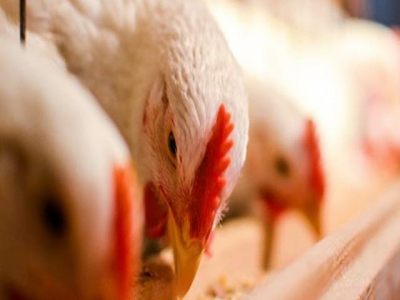Broiler lighting, insect feeds focus of new research grants

Innovate UK awards grants to Bristol Vet School studies into sustainable livestock production and improving chicken welfare.
The Bristol Vet School, part of the University of Bristol in the U.K., has been awarded two Innovate UK grants totaling nearly £160,000 for studies that aim to further progress towards sustainable livestock production and improve broiler chicken welfare. The projects will use the new £1 million CIEL poultry house, funded by the Centre for Innovation Excellence in Livestock (CIEL), a membership organization linking academic institutions and industry partners in the U.K.
Specifically, the projects focus on lighting for broiler chicken production and the feasibility of on-farm insect larvae production for feeding broilers.
Lighting. Dr. Andy Butterworth, reader in farm animal science at the Bristol Vet School, will lead the £100,000 Bristol component of a larger study titled "Lighting for Broiler Enhanced Welfare & Commercial Output."
This collaborative project, involving Bristol researchers, Campden BRI and Greengate Lighting, will further develop and test the first ever bio-adaptive, circadian, smart lighting system for broiler chickens that will recreate the properties of natural daylight, the university said in its announcement.
Around 65 billion chickens per year are reared globally for meat and eggs, the vast majority in completely enclosed, carefully managed, biosecure environments. A key aspect of creating a suitable indoor environment for poultry is light, the university said.
Current industry standard lighting is white light-emitting diodes (LEDs) that dim to blue or dim to red. However, these lights exhibit strong spectral (color) peaks, so they do not replicate natural daylight, offer no adaptive control opportunities and are based on extrapolation of limited scientific research, according to Butterworth. This project aims to validate an innovative, bio-adaptive, circadian, smart lighting system.
Butterworth, poultry specialist research lead at the University of Bristol, said, “As the industry has grown, so, too, have consumer concerns for animal welfare. Natural daylight, while the ideal, is not practical in all parts of the modern farming industry. Lighting has been demonstrated to impact productivity and welfare in the poultry industry, but only day length and intensity are currently regulated to minimum standards. This project aims to achieve a step change in lighting for animal husbandry, enhancing productivity and animal welfare in the food production industry in the U.K. and globally.”
Insect larvae. John Tarlton, professor of regenerative medicine at Bristol Vet, will lead a £60,000 part of a £571,000 Innovate UK-funded project that will examine the feasibility of on-farm production of insect larvae from food waste to be used as a feed component for chickens.
“The global population is expected to increase to nearly 10 billion by 2050. Alongside other problems of climate change and reduced agricultural land availability, feeding the world’s population is one of the greatest challenges facing humanity," Tarlton said.
“Insects are one of the most-efficient converters of protein and are able to do this from non-human-edible food waste, a resource totaling 1.3 billion metric tons each year. Unfortunately, most people in the world are reluctant to eat insects. However, chickens, the world’s greatest producers of animal protein for human consumption, have no such sensibilities," he added. "Indeed, they are enthusiastic consumers of insects. The aim of the study is to assess nutritional, health and welfare outcomes in chickens ... to advance progress towards sustainable livestock production, with an emphasis on animal health and welfare.”
Related news
 Mobile system can inactivate avian influenza virus
Mobile system can inactivate avian influenza virus Mobile trailer designs would allow companies or government organizations to design and build their own trailer systems that could react to avian influenza
 Stress may affect gender ratio of poultry offspring
Stress may affect gender ratio of poultry offspring Treating hens with corticosterone can influence which sex chromosome offspring inherit.
 Study shows efficiency of BSF and bacteria for producing larvae as feedstuff and fertilizer
Study shows efficiency of BSF and bacteria for producing larvae as feedstuff and fertilizer Using black soldier fly (BSF) larvae and bacteria, poultry producers may be able to reduce chicken manure and generate large amounts of feed proteins